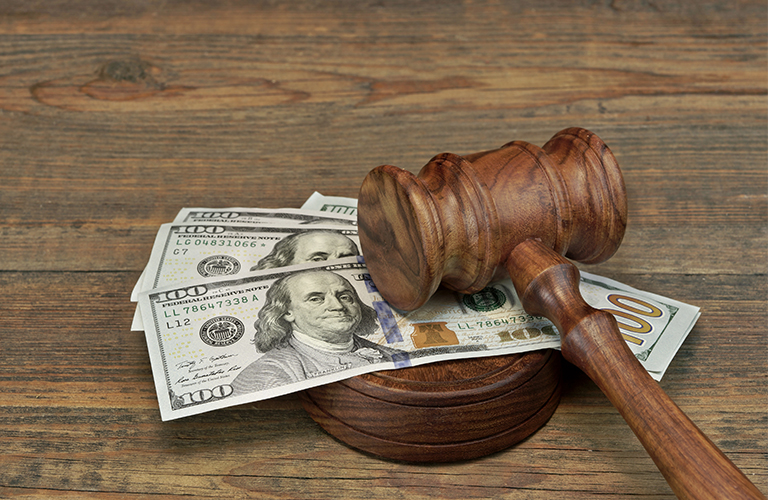
On March 31, 2017, the U.S. Court of Appeals for the Fourth Circuit declined to review its decision affirming the district court’s award of attorneys’ fees to the U.S. Patent and Trademark Office (USPTO), approving the new USPTO policy of requesting attorneys’ fees from applicants that appeal to the U.S. district courts.
In 2013 the USPTO broke its more than 170-year-old practice of not requesting attorneys’ fees in ex parte appeals to the US district courts and began requiring appellants seeking de novo review to cover the USPTO’s attorneys’ fees. The USPTO claims the authority to obtain these fees based on a reinterpretation of analogous provisions in the Patent Act and Lanham Act (also known as the Trademark Act of 1946) stating that appellants must pay “all the expenses of the [district court] proceeding” regardless of the outcome. (See US Patent Act, 35 USC § 145; Lanham Act § 21, 15 USC § 1071(b).) Previously the USPTO interpreted these provisions to mean only expenses such as travel costs and experts’ fees. The 2013 policy change to include attorneys’ fees as an ‘expense’ under these provisions was apparently introduced as a means to combat the agency’s rising costs.
Milo Shammas was the first applicant to be affected by the USPTO’s new policy. In 2013 Shammas appealed a Trademark Trial and Appeal Board decision denying registration for the mark PROBIOTIC for fertilizers to the U.S. District Court for the Eastern District of Virginia. (Shammas v Focarino, 990 F Supp 2d 587 (ED Va 2014).) The court entered summary judgment in favor of the USPTO and in January 2014 ordered Shammas to pay the USPTO $36,320.49 as “expenses of the proceeding”, $32,836.27 of which were attorneys’ fees.
Shammas appealed this decision to the US Court of Appeals for the Fourth Circuit, arguing that the award of attorneys’ fees violated the longstanding ‘American Rule’ where each party pays its own attorneys’ fees, whether the party wins or loses unless a statute or contract states otherwise. On April 23, 2015, a divided panel of the Fourth Circuit affirmed the district court’s decision. (Shammas v Focarino, 784 F3d 219 (4th Cir 2015).) Shammas subsequently petitioned for rehearing, arguing that the Supreme Court’s reasoning in Baker Botts LLP v ASARCO LLC, which discussed how a statute needs to be specific and explicit to deviate from the American Rule that forbids the award of attorneys’ fees, overruled the Fourth Circuit’s decision. (Baker Botts LLP v ASARCO LLC, 135 S Ct 2158 (2015).) This argument was rejected and Shammas’ petition to the Supreme Court for a writ of certiorari was denied in March 2016. (Shammas v Hirshfeld, 136 S Ct 1376 (2016).) Shammas then sought the district court to vacate the fees order under Rule 60(b) stating that Baker Botts requires it, but the district court denied the motion and when this denial was appealed, the Fourth Circuit affirmed on March 31 2017.
A conflicting decision was issued by the U.S. District Court for the Eastern District of Virginia in its interpretation of the analogous Patent Act provision. (See NanKwest Inc v Lee, 162 F Supp 3d 540 (ED a 2016).) In NanKwest Inc v Lee, a patent applicant appealed a Patent Trial and Appeal Board decision rejecting its patent claims to the U.S. District Court for the Eastern District of Virginia, which entered summary judgment in favour of the USPTO on September 2 2015.
The USPTO requested $111,696.39 from NanKwest as ‘expenses of the proceeding’, $78,592.50 of which were attorneys’ fees. The district court denied the USPTO’s request, holding that the American Rule should apply and the parties should be responsible for their own attorneys’ fees unless specifically and explicitly provided by statute. The district court noted that the language ‘expenses of the proceeding’ in the Patent Act does not specifically and explicitly include attorneys’ fees and therefore the USPTO could not obtain those fees from NanKwest. This case is now on appeal to the U.S. Court of Appeals for the Federal Circuit.
Given that the USPTO’s attorneys’ fees policy applies equally to both trademark and patent applicants –and the corresponding federal statutes have parallel language requiring ‘all expenses of the proceeding’ – if the Federal Circuit finds the Fourth Circuit’s analysis in Shammas v Focarino to be correct, the NanKwest holding would likely be overturned by the Federal Circuit. Such a finding will be a substantial deterrence to applicants that consider bringing de novo appeals to the district courts, as it would allow the USPTO to collect attorneys’ fees regardless of whether it wins or loses and force the applicants to be only able to appeal to the U.S. Court of Appeals for the Federal Circuit.
However, given that the inconsistent decisions both originated in the Eastern District of Virginia and the deferential ‘abuse of discretion’ standard that will be employed by the Federal Circuit, it is possible that there will be a split in the circuits. This, in turn, may lead the Supreme Court to revisit the issue in the future and provide clarity as to the legality of the USPTO’s attorneys’ fee collection policy.
This article first appeared on WTR Daily, part of World Trademark Review, in May 2017. For further information, please go to www.worldtrademarkreview.com.

